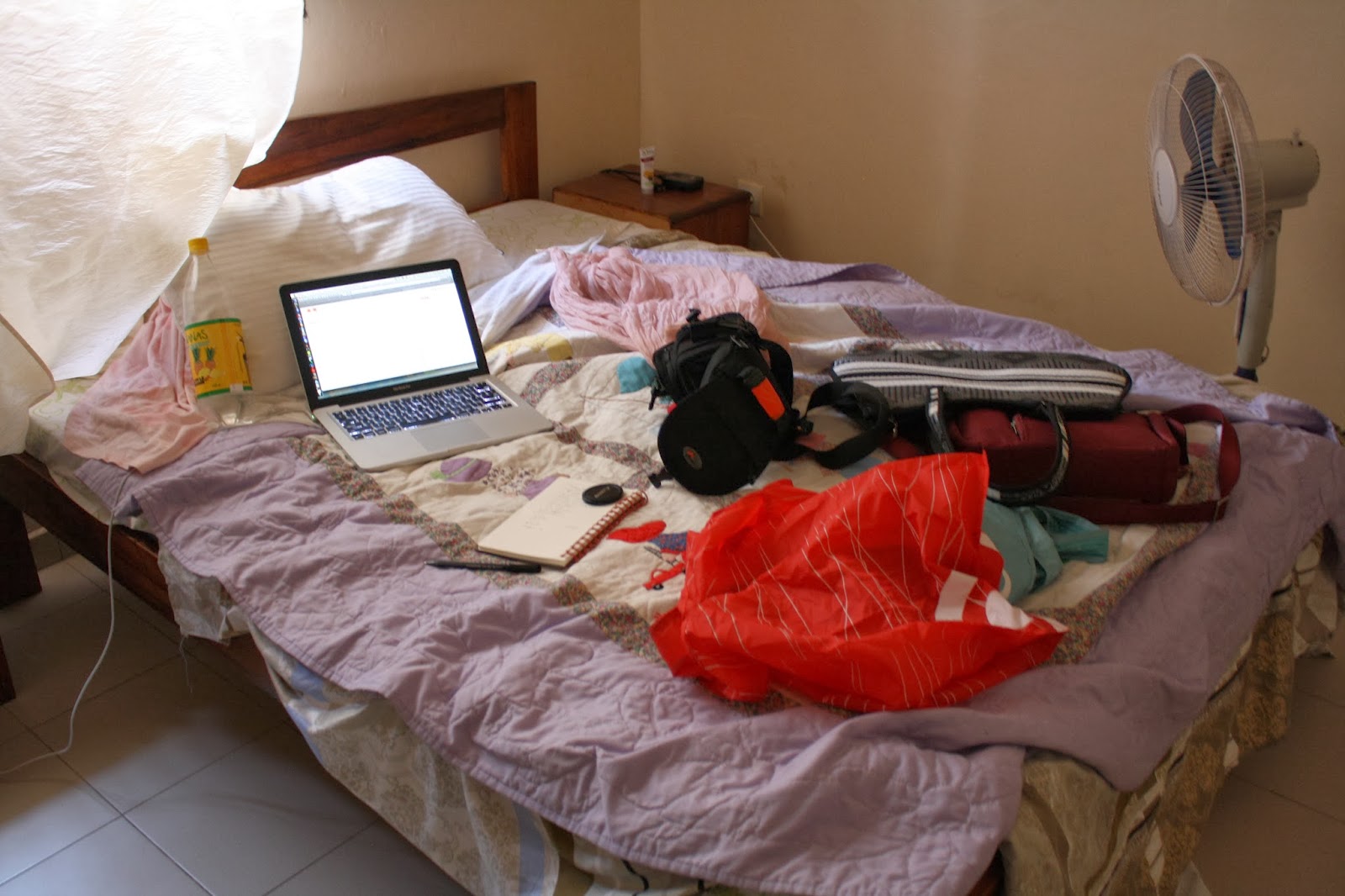Last night, Lucy came to my room at 3:30. Please would I take the baby? He'd been screaming all night; neither baby, mother or father had slept at all. What's more, Lucy hadn't napped the day before and Coco's birthday celebration the previous night had kept all of us—baby included—out until after midnight.
Of course I could take shrieking Phillipe. They rolled his little crib into my room. He was newly nursed. I was delivered diaper supplies. I was given thawed breast milk and a sanitized bottle. "One condition," I said: "That I see neither of your faces before noon," and closed the door.
Phillipe and I did fine. Poor child was miserable, one reason being that he had gulped so much air in his carryings-on that he needed help in getting it out. He went to sleep thereafter for almost four hours, a course record.
Over the month there have been many episodes a little like this in which I've fallen into a helpful solution. Sometimes just by being a degree detached, I've helped unravel knots of mythic size. I think this is perhaps part of a grandmother's assignment? I guess I'll be shaping my new role for a long time—just as I tried to figure out motherhood as each day passed.
It would have been so easy for me to write satirically about the comedy of life with a baby. But it really isn't comic at all. Although the life under this roof with a newborn requires humor, it's hard for Lucy and Yves, requiring energy and ingenuity that aren't always there. The jokes about sleeplessness don't seem funny with civility and a tiny life in the balance; now when routines have shot up by magnitudes in degree of difficulty, and a cup of coffee is the Impossible Dream.
I deeply regret having to leave tonight. I'll miss the beautiful windows that look out on the sandy, colorful world; the gold and blue curtains that—with the furnace of parental love—keep the evil eye away.

 The awareness of being useful is a phenomenal gift: I'd forgotten just how much it is. I'll go home with new skills: hand laundry, showering without running hot water, getting my price on what I want, and helping my daughter become a confident mother. Not bad for one month, the one that started everything anew, January 2014.
The awareness of being useful is a phenomenal gift: I'd forgotten just how much it is. I'll go home with new skills: hand laundry, showering without running hot water, getting my price on what I want, and helping my daughter become a confident mother. Not bad for one month, the one that started everything anew, January 2014.
"A bientôt," I'll tell them when I leave for the airport in a few hours. "See you soon?" November, probably. Babies redefine everything, don't they, the speed of time's passage most of all.
Of course I could take shrieking Phillipe. They rolled his little crib into my room. He was newly nursed. I was delivered diaper supplies. I was given thawed breast milk and a sanitized bottle. "One condition," I said: "That I see neither of your faces before noon," and closed the door.
Phillipe and I did fine. Poor child was miserable, one reason being that he had gulped so much air in his carryings-on that he needed help in getting it out. He went to sleep thereafter for almost four hours, a course record.
Over the month there have been many episodes a little like this in which I've fallen into a helpful solution. Sometimes just by being a degree detached, I've helped unravel knots of mythic size. I think this is perhaps part of a grandmother's assignment? I guess I'll be shaping my new role for a long time—just as I tried to figure out motherhood as each day passed.
It would have been so easy for me to write satirically about the comedy of life with a baby. But it really isn't comic at all. Although the life under this roof with a newborn requires humor, it's hard for Lucy and Yves, requiring energy and ingenuity that aren't always there. The jokes about sleeplessness don't seem funny with civility and a tiny life in the balance; now when routines have shot up by magnitudes in degree of difficulty, and a cup of coffee is the Impossible Dream.
I deeply regret having to leave tonight. I'll miss the beautiful windows that look out on the sandy, colorful world; the gold and blue curtains that—with the furnace of parental love—keep the evil eye away.

 The awareness of being useful is a phenomenal gift: I'd forgotten just how much it is. I'll go home with new skills: hand laundry, showering without running hot water, getting my price on what I want, and helping my daughter become a confident mother. Not bad for one month, the one that started everything anew, January 2014.
The awareness of being useful is a phenomenal gift: I'd forgotten just how much it is. I'll go home with new skills: hand laundry, showering without running hot water, getting my price on what I want, and helping my daughter become a confident mother. Not bad for one month, the one that started everything anew, January 2014."A bientôt," I'll tell them when I leave for the airport in a few hours. "See you soon?" November, probably. Babies redefine everything, don't they, the speed of time's passage most of all.






































